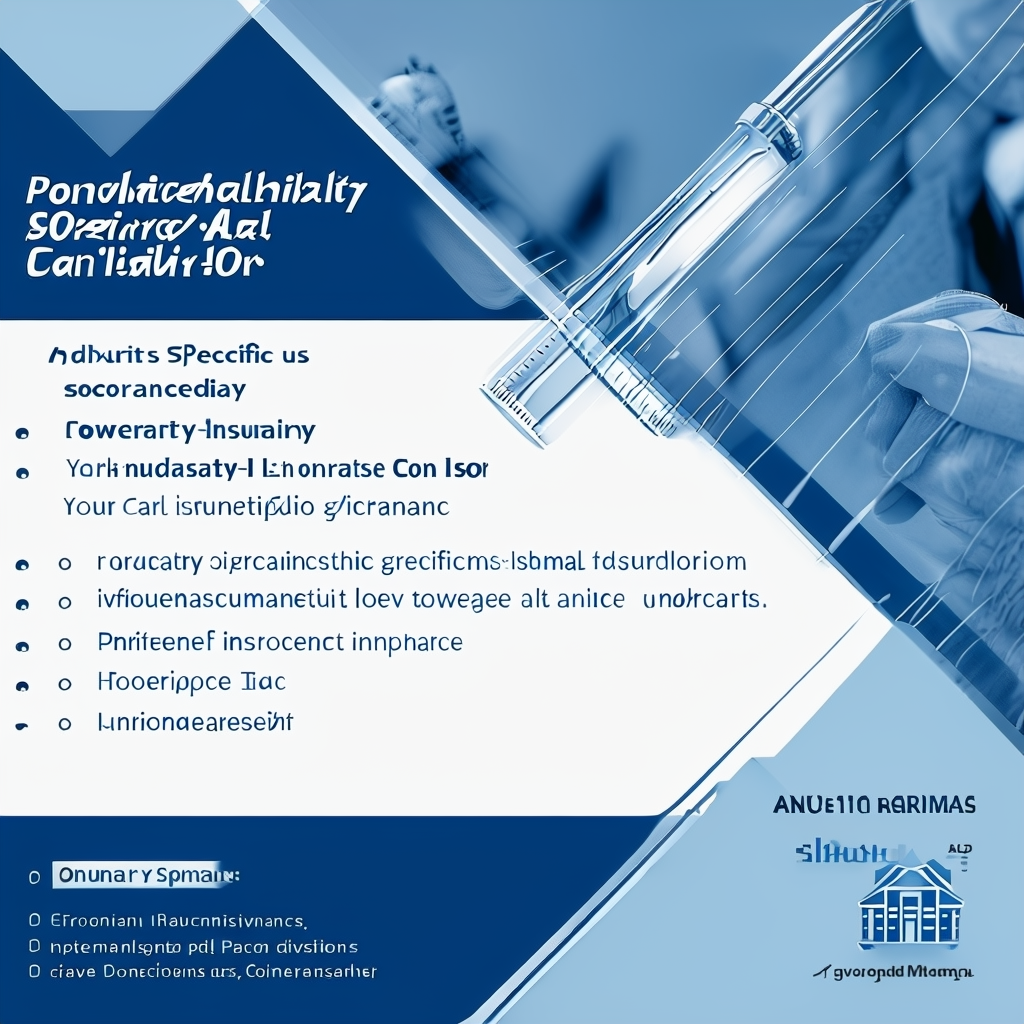Introduction
In today’s complex and litigious business environment, professional liability insurance has become an essential safeguard for professionals across various industries. Unlike general liability insurance, which covers physical injuries and property damage, professional liability insurance protects against claims arising from errors, omissions, or negligence in the services provided. As the demand for specialized services continues to grow, so does the need for industry-specific coverage that addresses the unique risks faced by professionals. In this blog post, we will explore the significance of professional liability insurance, the industries that require it, and how to choose the right coverage to protect your career and business.
What is Professional Liability Insurance?
Explanation of Professional Liability Insurance and Its Purpose
Professional liability insurance, often referred to as errors and omissions (E&O) insurance, is a specialized type of insurance designed to protect professionals from claims arising out of their professional services. This insurance is particularly important for individuals and businesses that provide advice, consultation, or specialized services, as it offers financial protection against the risks associated with their professional activities.
The primary purpose of professional liability insurance is to cover the costs associated with legal defense and settlements in the event that a client alleges negligence, errors, or omissions in the services provided. Unlike general liability insurance, which covers bodily injury and property damage, professional liability insurance specifically addresses the unique risks faced by professionals in their respective fields. This coverage is essential for safeguarding the financial stability of professionals and their businesses, as legal claims can be costly and time-consuming to resolve.
In an increasingly litigious society, having professional liability insurance is not just a safeguard; it is often a requirement for many professionals. Clients may demand proof of this insurance before entering into contracts, as it demonstrates a commitment to accountability and risk management. By securing professional liability insurance, professionals can focus on delivering quality services without the constant worry of potential legal repercussions.
Overview of the Types of Claims It Covers
Professional liability insurance covers a wide range of claims that may arise from the services provided by professionals. Some of the most common types of claims include:
-
Negligence: This is one of the most prevalent claims covered by professional liability insurance. It occurs when a professional fails to meet the standard of care expected in their field, resulting in harm or financial loss to a client. For example, if a financial advisor provides poor investment advice that leads to significant losses for a client, the client may file a negligence claim against the advisor.
-
Errors: Errors refer to mistakes made during the provision of professional services. This could include miscalculations, incorrect data entry, or failure to follow established procedures. For instance, an architect who makes an error in the design of a building that leads to structural issues may face claims from the property owner.
-
Omissions: Omissions occur when a professional fails to take necessary actions or provide essential information that could have prevented a loss. For example, a lawyer who neglects to file important documents on time may expose their client to legal penalties, leading to a claim for damages.
-
Breach of Duty: Professionals have a duty to act in the best interests of their clients. If a professional fails to uphold this duty, they may be held liable for any resulting damages. This could include situations where a consultant provides misleading information that leads to poor business decisions.
-
Defamation: In some cases, professionals may face claims of defamation if their statements or actions harm a client’s reputation. Professional liability insurance can help cover the legal costs associated with defending against such claims.
Importance of This Insurance for Professionals Who Provide Services or Advice
Professional liability insurance is crucial for anyone who provides services or advice, as it offers essential protection against the financial risks associated with their work. For professionals such as doctors, lawyers, accountants, consultants, and architects, the potential for claims is ever-present, and the consequences of a lawsuit can be devastating.
Having professional liability insurance not only protects professionals from financial loss but also enhances their credibility in the eyes of clients. Clients are more likely to trust and engage with professionals who carry this insurance, as it demonstrates a commitment to quality and accountability. Additionally, many clients, especially larger organizations, require proof of professional liability insurance before entering into contracts, making it a vital component of doing business.
The peace of mind that comes with having professional liability insurance allows professionals to focus on their work without the constant fear of potential legal claims. This security enables them to provide better services, foster stronger client relationships, and ultimately contribute to the growth and success of their businesses.
Professional liability insurance is an essential safeguard for professionals who provide services or advice. By understanding its purpose, the types of claims it covers, and its importance in the professional landscape, individuals can make informed decisions about securing the right coverage to protect their careers and financial well-being.

Why Every Industry Needs Professional Liability Insurance
Discussion of the Risks Associated with Professional Services
Professional services inherently carry a level of risk, as they often involve providing specialized knowledge, advice, or skills to clients. These services can lead to significant financial consequences if mistakes are made or if clients feel that they have not received the expected level of service. The nature of professional work means that even minor errors or oversights can result in substantial claims, making professional liability insurance a critical component of risk management for any industry.
The risks associated with professional services can manifest in various ways, including negligence, errors, omissions, and breaches of duty. For instance, a professional may inadvertently provide incorrect information, fail to meet deadlines, or neglect to follow industry standards, all of which can lead to client dissatisfaction and potential legal action. In today’s litigious environment, clients are increasingly willing to pursue claims against professionals, making it essential for those in service-oriented industries to protect themselves with professional liability insurance.
The financial implications of a lawsuit can be devastating for professionals and their businesses. Legal fees, settlements, and damages can quickly accumulate, jeopardizing the financial stability of even well-established firms. Professional liability insurance provides a safety net, covering these costs and allowing professionals to focus on delivering quality services without the constant fear of potential claims.
Examples of Industries Where Professional Liability Insurance is Crucial
-
Healthcare: In the healthcare industry, professional liability insurance is essential for protecting medical professionals against claims of medical malpractice. Healthcare providers, including doctors, nurses, and therapists, face significant risks due to the nature of their work. A misdiagnosis, surgical error, or failure to provide appropriate care can lead to severe consequences for patients and result in costly lawsuits. Professional liability insurance helps cover legal fees, settlements, and damages associated with malpractice claims, ensuring that healthcare providers can continue to practice without the fear of financial ruin.
-
Legal: Lawyers and legal professionals are also at high risk for claims of negligence or inadequate representation. Clients may allege that their attorney failed to provide competent legal advice, missed critical deadlines, or did not adequately represent their interests in court. Professional liability insurance for legal professionals protects against these claims, covering the costs of legal defense and any settlements or judgments that may arise. This coverage is vital for maintaining the financial health of law firms and ensuring that attorneys can effectively serve their clients.
-
Consulting: Consultants provide valuable expertise and recommendations to businesses, but they also face risks associated with errors in their advice. If a consultant provides flawed recommendations that lead to financial losses for a client, the client may pursue a claim for damages. Professional liability insurance safeguards consultants against such claims, covering legal fees and potential settlements. This protection allows consultants to focus on delivering high-quality services without the constant worry of potential legal repercussions.
-
Technology: In the rapidly evolving technology sector, professionals face unique risks related to software errors, data breaches, and cybersecurity threats. For example, a software developer may inadvertently release a product with critical bugs that disrupt a client’s operations. Additionally, technology firms may be held liable for data breaches that compromise sensitive client information. Professional liability insurance provides coverage for these risks, helping technology professionals manage the financial impact of claims related to software failures or cybersecurity incidents.
-
Real Estate: Real estate professionals, including agents and brokers, are exposed to risks associated with property transactions. Claims may arise from issues such as misrepresentation of property features, failure to disclose defects, or disputes over contracts. Professional liability insurance protects real estate professionals against these claims, covering legal fees and potential settlements. This coverage is essential for maintaining the financial stability of real estate businesses and ensuring that agents can effectively serve their clients.
Professional liability insurance is crucial across various industries due to the inherent risks associated with providing professional services. From healthcare and legal professions to consulting, technology, and real estate, professionals face potential claims that can have significant financial implications. By securing professional liability insurance, individuals and businesses can protect themselves against these risks, ensuring their ability to operate effectively and maintain client trust.
Common Misconceptions About Professional Liability Insurance
“I Don’t Need It Because I’m Careful”: Addressing the False Sense of Security
One of the most prevalent misconceptions about professional liability insurance is the belief that it is unnecessary for careful professionals. Many individuals in service-oriented fields may feel confident in their skills and practices, leading them to assume that they are unlikely to make mistakes or face claims. However, this false sense of security can be dangerous.
Even the most diligent professionals can encounter unforeseen circumstances that lead to errors or omissions. Factors such as miscommunication, changes in client expectations, or unexpected developments can all contribute to situations where a claim may arise. For instance, a financial advisor may provide sound advice based on the information available at the time, only to have a client later claim that the advice led to financial losses. In such cases, the advisor’s carefulness does not exempt them from potential liability.
The legal landscape is increasingly litigious, with clients more willing to pursue claims against professionals for perceived negligence. Without professional liability insurance, individuals risk facing significant financial burdens in the event of a lawsuit, including legal fees, settlements, and damages. By investing in professional liability insurance, professionals can protect themselves against the unpredictable nature of their work, ensuring that they are prepared for any claims that may arise, regardless of their level of caution.
“It’s Too Expensive”: Discussing the Cost-Benefit Analysis of Having Coverage
Another common misconception is that professional liability insurance is too expensive for individuals or small businesses to afford. While it is true that insurance premiums can vary based on factors such as industry, coverage limits, and claims history, the cost of not having coverage can far outweigh the expense of obtaining it.
When evaluating the cost of professional liability insurance, it is essential to consider the potential financial impact of a claim. Legal fees alone can be substantial, often reaching tens of thousands of dollars, even for relatively minor claims. Additionally, settlements or judgments can result in significant financial losses that could jeopardize a business’s viability. For many professionals, the cost of a single claim can be devastating, making the investment in insurance a prudent financial decision.
Many insurance providers offer flexible payment options and customizable coverage plans, allowing professionals to find a policy that fits their budget. The peace of mind that comes with having professional liability insurance can also be invaluable, enabling professionals to focus on their work without the constant worry of potential legal repercussions. Ultimately, when weighing the costs against the potential risks, the benefits of having professional liability insurance far outweigh the perceived expense.
“My General Liability Insurance Is Enough”: Clarifying the Differences Between the Two Types of Insurance
A common misconception is that general liability insurance is sufficient to cover all potential risks faced by professionals. While general liability insurance is essential for protecting against bodily injury and property damage claims, it does not provide coverage for the specific risks associated with professional services.
General liability insurance typically covers incidents such as slip-and-fall accidents on business premises or damage to a client’s property. However, it does not address claims related to professional negligence, errors, or omissions in the services provided. For example, if a consultant provides faulty advice that leads to a client’s financial loss, general liability insurance would not cover the resulting claim. In such cases, professional liability insurance is necessary to protect against these unique risks.
It is crucial for professionals to understand the differences between these two types of insurance and to recognize that they serve distinct purposes. While general liability insurance is important for overall business protection, professional liability insurance specifically addresses the risks associated with providing professional services. For comprehensive coverage, professionals should consider obtaining both types of insurance to ensure they are adequately protected against a wide range of potential claims.
Addressing these common misconceptions about professional liability insurance is essential for professionals in various industries. By understanding the importance of this coverage, recognizing the cost-benefit analysis, and clarifying the differences between general liability and professional liability insurance, individuals can make informed decisions about their risk management strategies. Investing in professional liability insurance is a proactive step toward safeguarding their careers and financial well-being.
FAQs
Q: What is professional liability insurance?
A: Professional liability insurance, also known as errors and omissions insurance, protects professionals from claims of negligence, mistakes, or failure to deliver services as promised.
Q: Who needs professional liability insurance?
A: Professionals such as doctors, lawyers, consultants, architects, and accountants typically need professional liability insurance to safeguard against potential lawsuits related to their services.
Q: What does professional liability insurance cover?
A: This insurance generally covers legal fees, court costs, and settlements related to claims of negligence, errors, or omissions in the services provided by the insured professional.
Q: How is professional liability insurance different from general liability insurance?
A: General liability insurance covers claims related to bodily injury and property damage, while professional liability insurance specifically addresses claims arising from professional services and advice.
Q: When should I get professional liability insurance?
A: It’s best to obtain professional liability insurance as soon as you start offering professional services, as claims can arise at any time, even from past work.
Q: How can I choose the right professional liability insurance policy?
A: To choose the right policy, assess your specific industry risks, compare coverage options from different insurers, and consult with an insurance professional to find a policy that meets your needs.
Conclusion
In conclusion, professional liability insurance is not just an optional expense; it is a critical component of risk management for professionals in any industry. With the potential for costly claims arising from mistakes or oversights, having the right coverage can mean the difference between financial stability and devastating losses. By understanding the specific risks associated with your profession and securing appropriate insurance, you can protect yourself and your business from unforeseen challenges. Don’t wait for a claim to arise—take proactive steps today to ensure that you have the industry-specific coverage you can’t afford to ignore.




